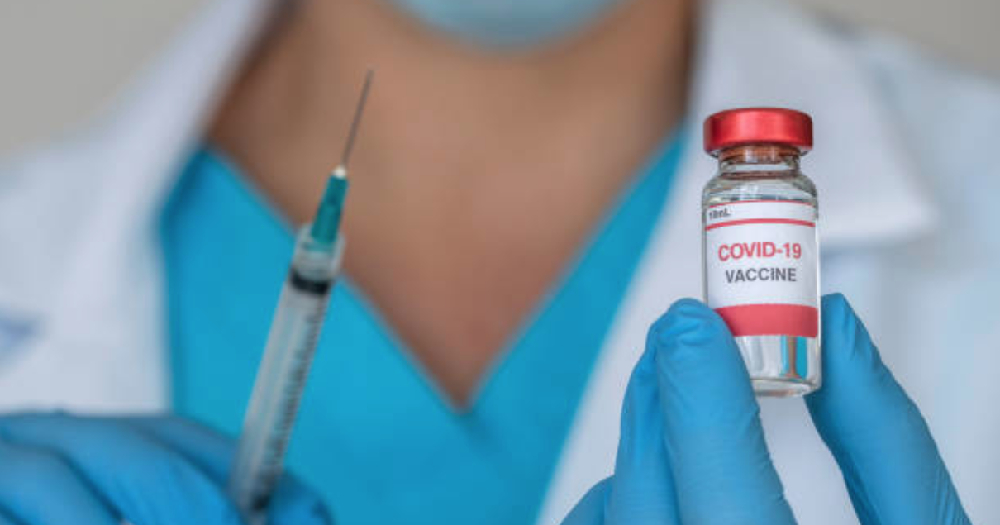Several countries are racing to get their hands on Covid-19 vaccines to combat the ongoing pandemic that has ravaged the world over.
The Covid-19 pandemic, said to be the worst in a century, had caused more than 1.5 million deaths, overloading hospitals and coming back in third and even fourth surges of infections.
Rich nations rushing to secure vaccines before everyone else
Different countries have come up with various ways to get their hands on vaccine supplies.
For instance, the United States has struck unilateral deals for all of its supply, while some other countries will secure vaccine access through Covax, a global consortium backed by the World Health Organisation to provide equitable vaccine distribution, according to Bloomberg.
But not all countries have equal access to vaccines.
Wealthy states have already snapped up most of the world's supply of Covid-19 vaccines.
People's Vaccine Alliance, a coalition including nonprofits such as Oxfam and Amnesty International, said rich countries, home to 14 per cent of the global population, had secured 53 per cent of the total stock of the "most-promising vaccines", Reuters reported.
And as they are getting doses from a number of manufacturers, they are more likely to secure one, even if one or more of the vaccine trials fail.
These countries include those in the European Union, the U.S., Britain, Canada, Switzerland, Australia, Hong Kong and Japan.
The number of doses they have secured are in the billions, with Canada getting enough to vaccinate its population five times over and the U.S. able to do the same for its population two times over.
Such hoarding of vaccines could potentially deprive people in relatively poorer nations the chance to get vaccinated, and the unequal access could result in delayed eradication of the disease in these parts of the world, like what happened with the 2009 swine flu pandemic.
China and Russia relying on their own vaccines
For China and Russia, however, they have chosen a different route, turning to domestically produced vaccines.
Russia was the first that claimed to have registered the world's first Covid-19 vaccine called Sputnik V -- the name was a reference to the Soviet Union's victory over the U.S. in launching the world's first satellite that triggered the space race.
China has also claimed that it is "leading the world" in vaccine development.
Both Russia and China authorised Covid-19 vaccines in July before they had been fully tested through large-scale clinical trials, which was seen as an unusual step.
Their push for the vaccines were cast by Western media, such as Wall Street Journal, to be part of a vaccine diplomacy effort that aims to "raise their global influence at the expense of the U.S. and its allies", with Beijing attempting to show that its system is superior to Western liberal democracies.
Lack of global coordination means a slower return to "normality"
The United Kingdom was the first western country to clear the use of clinically-approved Pfizer-BioNTech vaccines on Dec. 2, and the first to roll them out on Dec. 8.
The day was dubbed the start of its immunisation programme "V-Day", which was reminiscent of the language used to commemorate the allied forces' win in World War II over Nazi Germany.
The move was met with scepticism in the rest of Europe, with the European Union's drug regulator saying its own regulatory mechanism is the "most appropriate... for use in the current pandemic emergency".
A British minister said the country was the first to approve a jab as it is a "better country", despite the U.K. recording the highest number of deaths in Europe.
U.K. business secretary, Alok Sharma, likened the move to the U.K. leading "humanity's charge against the disease", even though the vaccine was developed by American and German companies.
The UK was the first country to sign a deal with Pfizer/BioNTech - now we will be the first to deploy their vaccine
— Alok Sharma (@AlokSharma_RDG) December 2, 2020
To everyone involved in this breakthrough: thank you
In years to come, we will remember this moment as the day the UK led humanity’s charge against this disease
Such sense of nationalism was slammed by foreign officials, with German ambassador to the U.K. Andreas Michaelis saying: "Why is it so difficult to recognise this important step forward as a great international effort and success."
Why is it so difficult to recognize this important step forward as a great international effort and success. I really don't think this is a national story. In spite of the German company BioNTech having made a crucial contribution this is European and transatlantic. https://t.co/SE4XDG4P0o
— Miguel Berger (@GermanAmbUK) December 2, 2020
Shortly after the U.K. made its announcement on Dec. 2, Russian President Vladimir Putin ordered the deployment of the vaccine to frontline workers and other high-risk people on Dec. 6.
Such nationalistic rivalry, perhaps accelerated in the current climate of rising nationalism, might have led to Covid-19 vaccines being developed at record speed that is much shorter than the time typically needed to develop one.
While there is nothing wrong in governments wanting to inoculate their populations and ensure their safety, the lack of a global effort at tackling the pandemic might have long-term consequences for all.
This is because the lack of equal vaccine distribution globally might mean it could take much longer before the world could return to normality, or pre-Covid days, according to public health experts cited in The Atlantic.
Perhaps the United Nations Secretary-General Antonio Guterres said it best when he criticised the "total lack of international coordination" in tackling the pandemic, The Associated Press reported.
By acting in isolation, countries are "creating the situation that is getting out of control", he said.
Totally unrelated but follow and listen to our podcast here
Top image via Getty Images
If you like what you read, follow us on Facebook, Instagram, Twitter and Telegram to get the latest updates.
